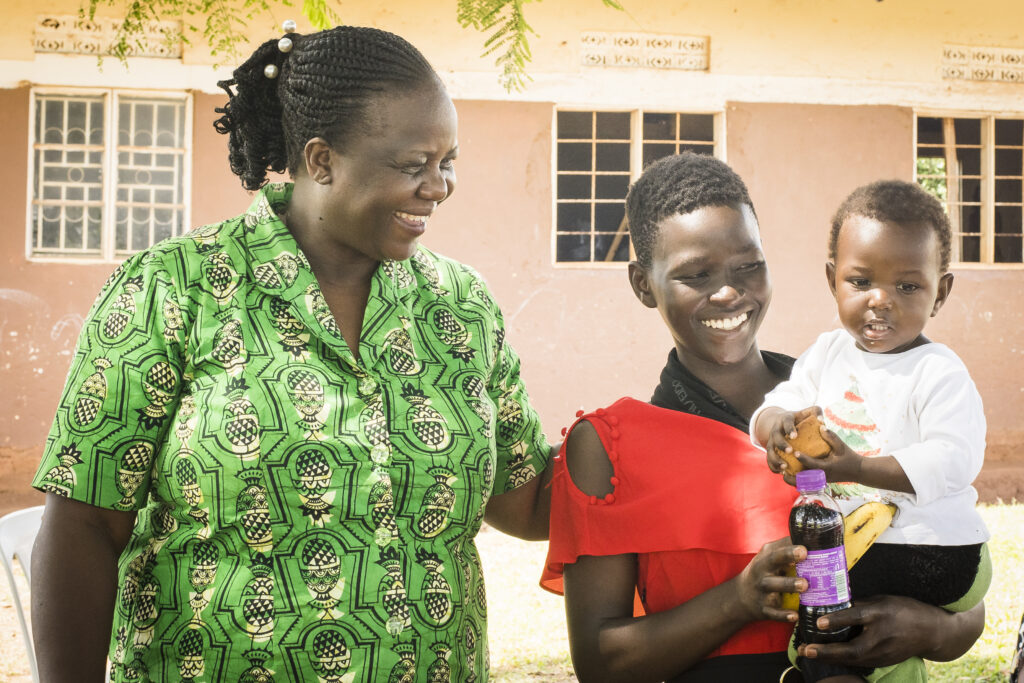19 Challenges Faced by Uganda and how WCFL can help

1. Poor Family Relationships:
Many families face a lot of conflicts which mainly end up in separation and divorce. Positive parenting can’t be effective if parents or caregivers don’t have good relationships. This has affected children in many ways; some children move on the streets, get married at early age or end up in drugs as a result of frustrations.
WCFL can intervene by training the caregivers about relationships. We can also help the parents to know their responsibilities and to make sure that they carry them out well.
If we have a stable and responsible family, then we know that the communities will also be stable. There is need for people to be assisted in family life, especially those in marriage and single parenting. Have age-graded package for family life, to teach them right from childhood to value family and have values e.g. obedience, respect, discipline.
This will reduce on these challenges.
Also, have a package for grandparents, as they are a great support. Many children are under the care of the grandparents as a result of death due to HIV/AIDS or abortion. In such case, the grandparents become the parents.
2. Leadership:
This has been a great challenge to our nation. Leaders who impose them and fail to mentor others into leadership.
WCFL can teach people about leadership from childhood and train leaders who can influence others positively. The focus for our training will be on mentorship and servant leaderships, called to service and not to be served.
3. Corruption:
This is very serious due to moral break down and has affected many developments. We need leaders with integrity, who will put strict rules and discipline for any corrupt officers.
WCFL will have a package on integrity and target leaders.
4. Street Children:
The major cause is family breakdown which brings separation and divorce. The children live in difficult conditions and decide to live on the streets.
WCFL will still teach about positive parenting and to how keep healthy relationships.
5. Poverty and Famine:
Many Ugandans live in difficult conditions. They don’t have sustainable income and most of them are not hard working.
WCFL will have a package to train people on work hard, savings, investing and marketing.
Uganda is a rich country, but we have not been helped to tap on the resources which we have. There is need to empower people with vocational skills development and encouragement co-operatives.
6. High Population:
The rate of growth is a big problem at 36 million people compared to the resources we have. As a result we have many young graduates on the streets without employment. The education system has not prepared them to be job makers, instead they are job seekers. This is a big threat.
WCFL comes in to train the population on family planning, decision making and critical thinking. We lack the aspect of critical thinking and understanding the consequences of every decision that is made. (not only will) This will help people to have (a )manageable number of children but also to plan well with the limited resources that we have.
7. Unemployment:
This poses a big challenge with young graduates, who have nothing to do after university. The education system prepares them for white collar jobs. They have no vocational skills to make jobs for themselves.
The majority of young people are frustrated and some end up in drug abuse or prostitution.
WCFL will intervene by teaching about relevant and appropriate education, which empowers children to be complete (holistically) with skills to work hard, serve, invest and make living. The government should invest more in vocational education but also ensure that all students come out with livelihood skills to be self reliant but also compete internationally (East Africa).
8. Myths:
We have many people who live in the bondage of wrong/false interpretation. This has impacted them negatively. For-instance women justify that it is okay to be beaten as part of male female relationships and women are taught to accept, tolerate and even rationalise battering.
We believe that training and education there will be the solution to such problems.
9. Maternal Deaths:
Uganda is a poor country, with a mainly rural population mostly engaged in subsistence farming. Literacy is estimated at about 64% for men and 47% for women. Uptake of reproductive health (RH) services is poor, with 23% contraceptive prevalence, and 38% skilled attendance at delivery, ten percent postnatal care attendance, and maternal mortality ratio of 505 per 100,000 live births. Attendance to one antenatal care visit is 90%, but less than 50% completes three or more antenatal visits, as advised by WHO. The reasons for high antenatal attendance at least for one visit and the low usage of other services are unknown, and may be due to the fact that pregnant women are given a visit card in the first antenatal consultation, which may facilitate their access to public health units in case of emergencies.
Every day 19 mothers die in child birth in Uganda. This situation is terrible when you visit the health clinic or hospital. The midwife ratio is high, in Bulambuli district, Muyembe Health center 4, last year in December 2015 they worked on 150 mother who gave birth. 70 of these mothers were the teens of 13-18. In Eastern Uganda, we have the highest number of teenage pregnancies registered in Uganda. This age range is from twelve to thirteen years old.
WCFL will train young girls in sexual reproductive health.
10. Teenage Pregnancy:
According to the Uganda Bureau of Statistics, one in every four teenage girls between 15 and 19 was found pregnant. The Population Secretariat indicates that of the 1.2 million pregnancies recorded in Uganda annually, 25 per cent of these are teenage pregnancies. These more than 300,000 teenagers who get pregnant also account for the bulk of unwanted pregnancies, which end up in unintended births or abortion.
This state of affairs has not spared either the school goers or the non-school goers. Needless to say, the effects spill over on to their health, economic and social status. The World Population Day theme for this year, “Let girls be girls, invest in Teenage pregnancy,” could not be more timely. The day is celebrated every July 11 to raise awareness on global population matters.
According to the Uganda Demographic Health survey 2011, about 14 per cent of young women and 16 per cent of young men had their first sexual encounter before the age of 15 while 57 per cent of young women had their first encounter before the age of 18.Early marriage, early initiation of sex and lack of information, are said to be the leading drivers of adolescent pregnancy. According to Dr Wilfred Ochan, the Assistant Country Representative United Nations Population Fund (UNFPA), lack of access to reproductive health information supported with services, has led teenagers into early sex while poverty and cultural practices continue to force girls into early marriages.
WCFL will ensure that knowledge on reproductive health is given to children, young people, women and men.
11. Environment:
We live in unclean and dirty sanitation conditions. The environment that we live in is surrounded by rubbish and full of flies. We have no training right from childhood to care and keep the environment clean.
WCFL will ensure that knowledge is passed on especially to the children in school. We need to get the young generation to appreciate and desire to live in a clean environment. We can partner with schools to introduce special clubs to teach them about the environment.
12. Child and Human Sacrifice:
This is rampant in Uganda due to a moral break down, poverty and demonic influence. We have lost many young people.
Uganda believes in witchcraft, and as a result, many lives are lost.
WCFL will train the people in the individual personal value of each citizen and teach about identity and purpose. This training will also include instilling in people the skills of critical thinking and understanding the consequences of one’s actions.
13. Breakdown of Traditional Extended Family System:
Our individual cultures had this as a special concern for each other. We had to care for every single one, especially the young children, to monitor their growth and progress in education. This system is not functional now, as we no longer care for each other. Parenting used to be everyone’s concern to ensure that children were disciplined and going to school.
WCFL will still encourage collective responsibility during parenting but more so encouraging men to take on the role as leaders in the family. Many men have left their responsibilities for the women in the families when they need to be fathers to provide basic needs for their families and to parent their children.
14. Defilement, Sexual Abuse and Rape:
Many young people are in prison as a result of this. Mbale prison has a total of 750 male 60 women inmates and 85% are defilement or rape cases.
WCFL can equip young people with knowledge and practical life skills to make wise decisions about their reproductive life.
15. Abortion:
Many young girls and women die due to abortion. They lack knowledge about sex education but also are influenced by their peers and parents.
They are not prepared to be mothers or fathers.
WCFL will teach them about true love and delaying sex until maturity. This needs to begin early in primary schools so that children understand puberty and how God has created them male and female.
16. Diseases: HIV/AIDS
1.6 million PLW HIV, Uganda’s HIV prevalence rate is 7.4. We have 140,000 new infections, 63000 AIDS related deaths and 40% adults on antiretroviral treatment. This situation shows that there is an increase in HIV/AIDS; people have no person value identity and purpose. They have no purpose in life, so they choose to live careless lives.
WCFL will still train about HIV/AIDS and prevention strategies.
17. High School Drops:
The rate of drop out is high, especially in girls. When they finish primary education, many girls drop out of school when they reach secondary school. Some of their parents and caregivers fail to provide scholastic materials. They are therefore then sent away from school. Sometimes the caregivers encourage them to drop out of school and get married so that they receive the dowry. Families that live in poverty always practise this. They prefer to receive cows for their daughters, but not delaying in school.
Literacy in Uganda is estimated at 64% for men and 65% for women.
18. Shortage of Land:
As a result of high population, the land is not enough for people to grow food.
Many people now live in small plots; this has increased famine because there is no land to cultivate on a large scale. As a result of this, the problem with land leads to people quarrelling and killing each other. We have a lot of cases in court because of this.
WCFL shall train people on family planning in order families to have sustainable income for life.
19. Domestic violence:
Two thirds of the Ugandan women experience domestic violence from their partners. 65% had been harassed or beaten by their partners and the methods of violence include beating, pushing, dragging forced sex, arm twisting, threatening, insulting and choking, rural women suffer more than urban women.
WCFL shall empower families with positive parenting skills, communication skills and relationship skills.
by Joyce Kidulu, Regional Coordinator for Uganda



